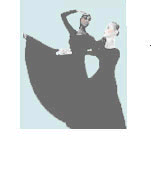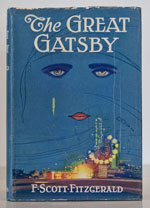
Literature and Poetry
 Gatsby to Garp: Our Doubt Is Our Passion, and Our Passion is Our Task. The Rest is the Madness of Art
Gatsby to Garp: Our Doubt Is Our Passion, and Our Passion is Our Task. The Rest is the Madness of Art
Gatsby to Garp examines the vibrant American literary landscape of the twentieth century, a period that encompassed a remarkable explosion of creativity, and explores such topics as language and style, geography and setting, literary identity, and relationships among writers. By looking at the literary output of the entire century through a series of vignettes, connections emerge — sometimes unexpectedly. more »
The Scout Report: Folger, Math, Yale Writing, Portraiture & Art Techniques, British Colonialism Images and The Quabbin Reservoir
Can you use a popular book to explore interfaces between science, citizen action, public health, and the US Legal system? The Science in the Courtroom makes it possible; Interested in integers? Fascinated by fractals? Consult MIT's OpenCourseWare Math website; Folger Digital Texts visitors will find a source code that allows new noncommercial Shakespeare projects and apps; The Yale Writing Center Advice for Students contains areas that include "What Good Writers Know" and "Model Papers from the Disciplines." more »
 Love Your Library
Love Your Library
Julia Sneden writes: I was at the checkout counter of a local supermarket last Saturday, watching as a pleasant woman rang up my groceries. In the brief pause as I wrote my check, the cashier turned to the youngster who was bagging the groceries. "Hey, do you know if the library is open today?" she asked. "Nah," the bagger replied scornfully. "I don’t do libraries. I can Google anything I need to know." more »
 Writing About Breast Cancer: From Books to Blogs
Writing About Breast Cancer: From Books to Blogs
Ellen Leopold writes: It's easy to forget that women’s writing about breast cancer is of relatively recent vintage. The first women to portray the patient's perspective, to write about their own experience, were established writers and public figures before they took up the disease, with credentials persuasive enough to overcome their publishers' reluctance. Today's widespread use of breast-conserving surgery, for example, is at least partially attributable to the refusal by some of them to undergo radical mastectomies. more »







